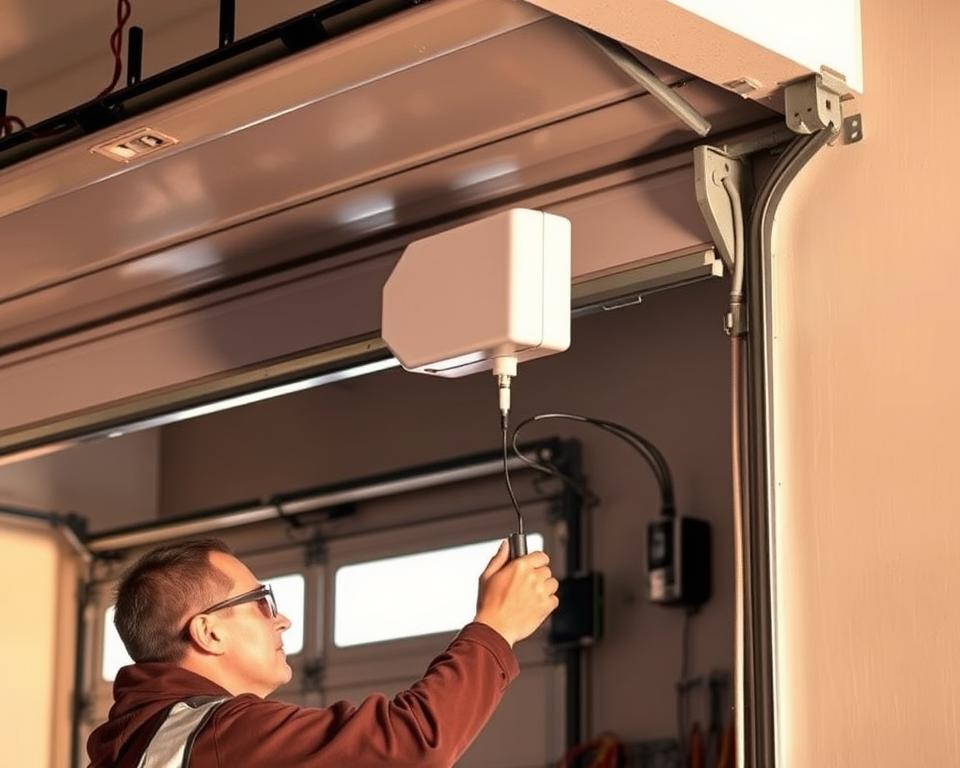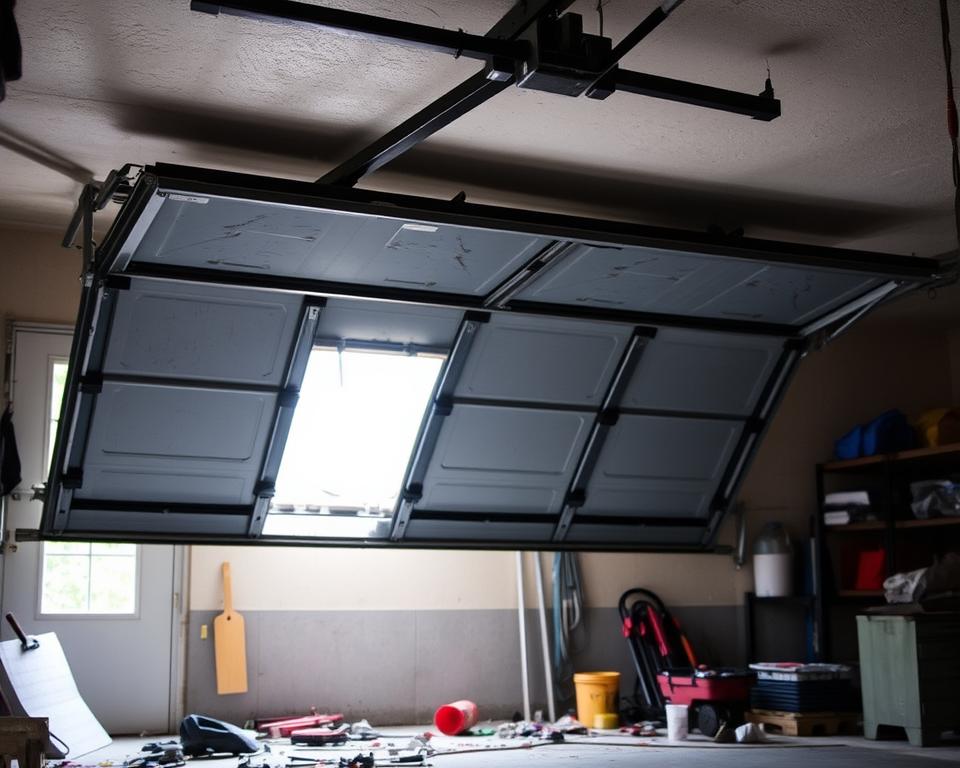HVAC Installation Region
Were a well-maintained HVAC unit can last up to twenty years? Investing in skilled Heating, Ventilation, and Air Conditioning implementation in your region is not just a comfort. It’s also a intelligent economic decision for property owners. In the Chatsworth changing climate, having a trustworthy heating and cooling system is essential. Businesses like Fresh Air HVAC focus in implementation, guaranteeing your system operates effectively and conserves electricity.
These specialists are dedicated to customer satisfaction. They offer tailored options for your AC installation service Chatsworth demands. This approach guarantees your unit functions at its peak efficiency, resulting in prospective energy reductions.
Main Points
- The standard Heating, Ventilation, and Air Conditioning unit lifespan varies from 10 to 20 years due to upkeep.
- Consistent HVAC upkeep aids avoid unexpected increases in energy bills.
- DIY Heating, Ventilation, and Air Conditioning implementations can result in risks and invalidate service agreements.
- Urgent HVAC assistance address urgent problems like malfunctions or fume escapes.
- Choosing a expert technician guarantees correct capacity selection and heightened efficiency.
- Over 30 yrs of expertise in the Chatsworth area enhances service reliability.
Grasping HVAC Systems and Their Value
Heating, Ventilation, and Air Conditioning units are vital for maintaining homes and businesses cozy, especially in Chatsworth, California’s changing weather conditions. They secure safe and comfortable inside conditions through warming, air flow, and air conditioning. Understanding the different Heating, Ventilation, and Air Conditioning units and spotting warning signs aids sustain efficiency and pleasantness all year.
Definition of HVAC
Heating, Ventilation, and Air Conditioning represents Heating, Ventilation, and Air Conditioning. It controls indoor climate, securing ideal coolness irrespective of outside weather. In the Chatsworth area, where mornings are cool and midday highly heated, a quality Heating, Ventilation, and Air Conditioning unit keeps internal temperatures pleasant day-long.
Types of HVAC Units
There are several HVAC units, each serving specific requirements:
- Main Air Conditioning Units: These cool by spreading air through air ducts.
- Ductless Mini-Split Systems: Ideal for homes without ductwork, providing control over separate rooms.
- Heating and Cooling Pumps: Flexible, they can simultaneously warm and chill, adapting to various environments.
Symptoms You Should Consider a New HVAC System
Residents should be alert to signs of HVAC failure, which may suggest it’s time for maintenance or substitution:
- Uneven Temperatures: Difficulty maintaining a steady temperature indicates a unit issue.
- Rising Utility Bills: A abrupt spike in power expenses often indicates inefficiency.
- Regular Fixes: If fixes are frequent, it might be time for a fresh system.
- Unusual Noises: Uncommon sounds are a definite indicator of an HVAC issue.
- Frequent Cycling: If the unit starts and stops more than usual, it’s struggling to keep temperature.
Grasping the significance of HVAC systems and spotting warning signs is key to coziness and optimal performance in Chatsworth.
| HVAC Malfunction Signs | Impact on Comfort | Possible Solutions |
|---|---|---|
| Uneven Temperatures | Discomfort and frustration | HVAC servicing or substitution |
| Increased Energy Bills | Economic burden | Evaluate system efficiency, think about improvements |
| Ongoing Repairs | Disruption and anxiety | Consult professionals for assessment |
| Strange Sounds | Interference with daily activities | Quick evaluation and repair |
| Constant Cycling | Subpar temperature management | Unit analysis and replacement options |
Pros of Professional HVAC Setup
Putting money in skilled HVAC setup brings numerous benefits, enhancing your home’s temperature regulation and energy management. Residents looking to optimize their temperature control systems profit immensely from expert knowledge. Accurate implementation ensures prolonged effectiveness and reliability.
Securing Efficiency
Professional HVAC installation greatly boosts power conservation. Units installed by experts function at their optimal performance, cutting down on energy waste. In the Chatsworth area, where weather fluctuations can tax HVAC systems, expert setup keeps consistent coziness without raising boosting utility bills.
When systems are accurately implemented and upkeep, they perform as expected. This eliminates the typical issue of higher energy bills due to aging or incorrect setup. Consistent filter cleaning and seasonal reviews substantially enhance HVAC effectiveness and duration. Residents thus gain considerable reductions on their utility expenses.
Prolonging Equipment Lifespan
Skilled HVAC setup also increases the life expectancy of systems. An AC unit can operate 10 to 15 yrs with regular upkeep. Installation by skilled experts secures it adheres to manufacturer standards, often demanding expert assistance to keep warranties active.
This emphasis on high standards enhances trustworthiness and reduces the necessity for expensive repairs and replacements. Firms like Hesd Company and U.S. Air Conditioning & Heating emphasize the value of expert setup for sustained outcomes and client happiness. A latest example demonstrates upgrading to an power-saving central cooling system improved coziness and decreased utility costs, showcasing the extended benefits of high-standard setups.
| Component | Expert Setup | Do-It-Yourself Setup |
|---|---|---|
| Energy Performance | Enhanced energy performance with reduced utility bills | Potential for increased energy waste |
| Unit Duration | Extended due to correct installation and warranty validation | Shortened lifespan and possibility of nullified service agreements |
| Compliance | Complies with local regulations and factory specifications | Potential for code violations and possible penalties |
| Warranty Support | Usually offered, granting assurance | No warranty coverage, leading to higher risks |
The HVAC Installation Process
Grasping the HVAC setup procedure can greatly improve your journey and satisfaction. It begins with an HVAC evaluation, where certified professionals evaluate your current setup and your unique requirements. This preliminary evaluation is crucial for ensuring that the suitable setup is selected for your home. Following the evaluation, the attention moves to the critical step of HVAC selection and strategizing.
Initial Consultation and Assessment
During the HVAC consultation, professionals will examine key elements such as the dimensions of your residence, current electricity consumption, and air quality needs. This review aids in deciding the optimal HVAC option tailored to your demands. The experts will guide you through different choices, highlighting the advantages of upgrading to state-of-the-art, energy-efficient units.
HVAC Selection and Preparation
Once you’ve discussed your needs, the focus will move to the choice of the HVAC unit. Preparing this step includes elements like system type, location, and any necessary modifications to your property’s structure. The setup for HVAC setup is crucial, securing that all requirements comply with local regulations and standards. At this phase, you’ll also get clear pricing details with clear costs, underlining the budget-friendliness of the selected option.
Installation Day: Overview
On the installation date, you can expect a streamlined process. The technicians will be punctual and carry out a detailed overview of what will happen. Effective communication eases anxieties about possible interruptions to your regular activities. After finishing the installation, the staff will explain the HVAC operations and servicing instructions. Property owners will notice immediate improvements in dependability, indoor air standards, and energy costs due to a premium York HVAC system or equivalent devices used.
| Stage | Overview | Key Considerations |
|---|---|---|
| 1. Initial Consultation | Assessment of current system and needs | Residence scale, electricity usage, indoor air standards |
| 2. Unit Choice | Choosing the right HVAC system | HVAC variety, installation site, changes |
| 3. Setup Day | Implementation of the picked system | Procedure outline, system operation training |
Choosing the Appropriate HVAC Service Provider in Chatsworth
Choosing an HVAC installer is crucial for the quality and security of your setup. It’s crucial to guarantee the job is done effectively and adheres to industry standards. When picking an HVAC service provider, concentrate on various essential characteristics that will assist in your selection.
Key Qualities to Look For
- Experience: Seek service providers with vast expertise in HVAC setup and service, especially in your region.
- NATE Accredited: NATE-certified installers have achieved rigorous tests and satisfy the top sector norms.
- Customer Feedback: Review scores and feedback through the Better Business Bureau (BBB) to assess the contractor’s reputation. Seek out any consumer issues.
- Responsive Communication: A reliable HVAC contractor ensures good communication, guaranteeing you are informed throughout the setup.
- Personal Recommendations: Recommendations from friends, local residents, and social channels often lead to reliable installers.
Importance of Licensing and Insurance
Working with a certified HVAC contractor in the Chatsworth area is a necessary for jobs over $500 in costs. Service providers should have an current authorization and maintain necessary insurance, including workers’ compensation and liability insurance. This protects the resident and ensures HVAC work complies with state regulations. Most reputable contractors also hold a bond for redress in situations with poor workmanship or breaches. Before selecting a service provider, inquire about their licensing, NATE certification, and coverage for assurance.
| Category | Details |
|---|---|
| License Necessity | Current authorization necessary for installations exceeding $500 |
| Insurance Categories | Employee Coverage, General Liability |
| Financial Bonds | Needed for redress in situations with non-compliance |
| Qualification | NATE qualification for skilled implementation |
Selecting the right HVAC service provider in your region requires thorough evaluation of key traits and compliance with licensing and policy standards. This method secures a effective installation and boosts confidence for property owners.
Cost Factors for HVAC Installation
Grasping the various cost factors is vital when planning for an HVAC implementation. Property owners in the Chatsworth area should be aware that costs can fluctuate substantially. This is because of elements like HVAC variety, energy efficiency ratings, and additional components. Familiarity with the average costs assists in financial planning and deciding wisely about residential comfort.
Standard Expenses in the Chatsworth area
The average cost of a brand-new AC unit in the United States is around $4,631. Expenses can span from $3,350 to $5,912, with energy-efficient models having higher prices. For example, brand-new AC units begin with a Seasonal Energy Efficiency Rating (SEER) of 13. Higher efficiency ENERGY STAR®-certified systems begin at a SEER of 14.5. Prices also are influenced by characteristics like quiet operation and smart thermostats.
Financing and Payment Options
Many residents consider HVAC financing options helpful. These plans make enhancing to a advanced and better performing unit attainable. Installers in your region often offer transparent costs, assisting households in budgeting while maintaining reducing on quality of service. Financial arrangements fluctuate, permitting individuals to choose a payment plan that matches their financial situation. This approach, they can benefit from cost-effective HVAC service.
| Expense Element | Estimated Range |
|---|---|
| Basic AC Unit | $3,350 – $5,912 |
| Average Cost of Installation | $4,631 |
| High-Efficiency Model (SEER 14.5+) | More expensive than basic units |
| Work Costs | Fluctuating, typically part of setup cost |
| Payment Plans | Varies by contractor |
Comprehending these pricing elements is crucial to deciding wisely. It underscores the importance of consulting with experienced contractors for best installation results.
Energy Efficiency and Its Effect
Energy performance in HVAC units is now a major focus for both residents and companies. These systems not only reduce energy bills but also provide financial incentives for setup. Understanding what makes an HVAC unit energy-efficient is crucial to choosing appropriately. This knowledge results in substantial extended savings.
Financial Rebates for Energy-Efficient Systems
Government initiatives provide financial rebates for eco-friendly HVAC units. Homeowners picking energy-saving systems may get refunds or credits. These rewards are vital in encouraging the adoption of power-saving HVAC systems. They help lower power usage and reduce carbon footprints.
Understanding SEER Ratings
The Seasonal Energy Efficiency Ratio (SEER) score is crucial for assessing HVAC systems. It assesses cooling performance over a cooling season against overall power usage. Greater SEER scores represent better energy performance, causing decreased electricity usage and utility costs. Property owners should consider SEER ratings to ensure their HVAC system is not only efficient and cozy.
Maintenance Tips for Your HVAC Unit
Preserving your HVAC system in excellent condition is vital for security, efficiency, and long life. By following HVAC maintenance tips, homeowners can eliminate unexpected breakdowns and expensive repairs. A seasonal maintenance checklist and spotting HVAC wear and tear signs are key to a well-functioning system throughout the year.
Seasonal Checklists
Routine annual HVAC maintenance boosts effectiveness and energy performance. Here’s what to add in your upkeep schedule:
- Swap out air filters every season to avoid increased energy consumption.
- Inspect and clear any debris from around the outdoor unit, maintaining a two-foot clearance for optimal airflow.
- Inspect refrigerant quantities and confirm the absence of system leaks.
- Make sure ducts are clean and clear to enhance air flow.
- Check the thermostat to ensure it works correctly; upgrade to an intelligent thermostat for increased power savings.
Symptoms of Wear and Tear
Recognizing HVAC wear and tear early can save you time and money. Be alert to:
- Strange sounds like grinding or squealing, which may signal mechanical issues.
- Inconsistent temperature control throughout different rooms in your home.
- Increased energy bills without a change in usage, indicating a reduction in system efficiency.
- Repeated cycling, which can indicate problems with the thermostat or compressor.
- Visible signs of corrosion or rust around the unit, indicating potential long-term damage.
| Upkeep Task | Interval |
|---|---|
| Swap out filters | Seasonally |
| Clear debris from outdoor unit | Annually |
| Assess refrigerant amounts | Annually |
| Ensure thermostat works | Monthly |
| Clear ducts | Every 1-3 years |
Preserving an effective HVAC system through these seasonal HVAC maintenance routines extends equipment duration and keeps energy costs reduced. Consistent checking for wear and tear enables prompt fixes, avoiding expensive repairs and guaranteeing best system functionality.
Frequent HVAC Implementation Mistakes to Steer Clear Of
Comprehending the DIY HVAC installation risks and complying with regional HVAC codes is essential to a effective implementation. This awareness can prevent high-priced blunders. Here are some typical blunders to avoid.
Self-Installation Errors
Many property owners try to install HVAC systems themselves, expecting to cut costs. However, this can lead to HVAC installation mistakes. Some typical DIY mistakes include:
- Not sizing the system appropriately for the property, which can cause poor energy efficiency.
- Neglecting to replace air filters regularly, resulting in restricted airflow and higher power bills.
- Improperly sealing air ducts, which can result in air loss and pressure problems.
- Skipping scheduled maintenance, putting the system at risk for malfunctions and expensive repairs.
- Trying to fix issues without proper knowledge, possibly leading to major damage to the HVAC setup.
Overlooking Regional Regulations
Ignoring local HVAC regulations is another significant error. These codes are crucial for a protected and efficient installation. The outcomes include:
- Financial penalties for violating codes, which can greatly increase installation expenses.
- Forced reinstalls if the system fails to meet code standards, resulting in additional expense and inconvenience.
- Increased risks associated with unsafe installations, such as electric risks or improper venting.
Picking professional HVAC contractors guarantees adherence to regional codes and reduces DIY HVAC installation risks. Expert setup improves system longevity and efficiency, ensuring your home’s coziness.
| Error | Potential Consequence |
|---|---|
| Incorrect Unit Sizing | Low energy performance and uncomfortable temperatures |
| Unsealed Ducts | Expensive air loss and increased pressure |
| Ignoring Scheduled Maintenance | Increased breakdown risk and repair costs |
| Violating Regulations | Financial fines and risky installations |
Common Questions about HVAC Implementation
Comprehending HVAC setup FAQs is essential for property owners. It gives essential information before choosing about their HVAC setups. Understanding the average HVAC installation timeline assists set realistic expectations. This results in successful installations and happy residents.
How Long Does Installation Take?
The length of an HVAC implementation fluctuates based on several factors. It can require between a several hours to a few days. Major considerations that influence the schedule include:
- Sophistication of the HVAC system being implemented.
- Dimensions of the residence and unique home features.
- Weather conditions that may affect the installation.
- Unexpected problems during setup.
Organizing beforehand can reduce delays. This ensures a smoother schedule and HVAC setup process.
Can I Install My Own HVAC System?
Some homeowners might think about a DIY HVAC unit setup to save costs. However, this method carries substantial dangers. Professional installation guarantees protection, adherence to regional regulations, and high-level expertise. Possible problems from incorrect setup can cause:
- Higher power usage.
- Regular fixes from errors.
- Voiding manufacturer warranties.
It is usually recommended to hire skilled experts. They provide the necessary care and experience for an effective system implementation.
Get in Touch for HVAC Implementation
Thinking about a new HVAC unit or looking for support with your current one? Our staff at U.S. Air Conditioning & Heating is here to support you. We are experts in the local Chatsworth area, ensuring our services meet your specific needs and requirements. Arranging an HVAC assessment in Chatsworth is simple, permitting you to review your requirements and find out about the most suitable solutions for your home or commercial establishment.
Book an Evaluation
We use a customized strategy, recognizing that every resident’s requirements is unique. By scheduling a assessment, you can have detailed conversations with our certified professionals. They will give information into different units, such as pump systems or central air systems. They will also recommend strategies that match your financial plan and energy-saving targets.
Obtain a No-Cost Estimate
Enhancing your indoor comfort is now safe. Obtain a no-cost estimate to learn about the prices of our premium HVAC solutions in your region, free of charge. This allows you to make informed decisions about your HVAC implementation price. It assists set clear expectations and boosts your trust in picking U.S. Air Conditioning & Heating for your HVAC setups.



